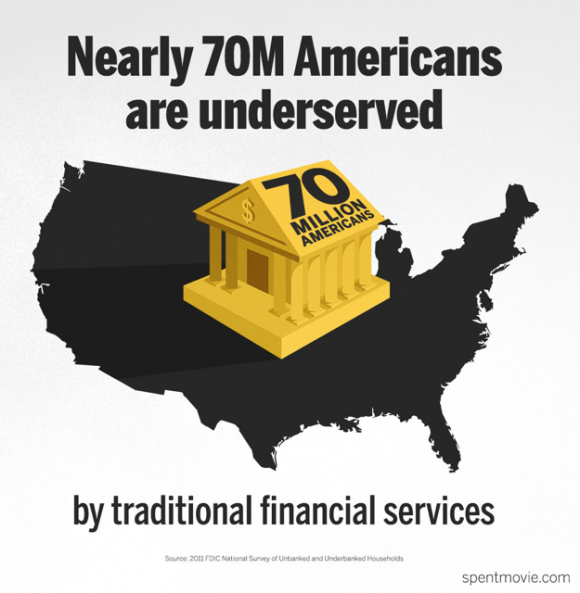 I was recently asked to review the documentary Spent: Looking For Change, which delves into many of the challenges that Americans currently face in terms of their access to traditional financial services and their ability to bounce back from financial difficulties.
I was recently asked to review the documentary Spent: Looking For Change, which delves into many of the challenges that Americans currently face in terms of their access to traditional financial services and their ability to bounce back from financial difficulties.
The film, directed by Derek Doneen and narrated by Tyler Perry, spreads awareness of several financial injustices by following the stories of 4 American families as they try to navigate the difficult path of work, debt, entrepreneurship, and healthcare.
The film has been shared more than 7 million times on YouTube and thus is already spreading awareness and encouraging change within the financial sector.
Perhaps the most frustrating family situation that the film portrayed was a nurse who also held an MBA. After working hard to put her child in private school, she left her job to take care of her sick mother. She emptied her 401k, lost her car to a title loan company, and eventually had to change her child’s school. Despite her above average education, she still fell victim to fees and bills she couldn’t pay.
Then there’s the young, talented college graduate who is a purse designer. Little boutiques love her work but she can’t afford the supplies to make extra bags to build profit. Her $100,000 in student loans and lack of a steady income prevents her from securing a business loan. She was the first in her family of immigrants to graduate from college but so far only has significant debt to show for it.
I’m sure many Young Adult Money readers can relate even further with the young couple who wants to get married and buy a home. A bad credit history prevents them from doing so despite the fact that the young man in the relationship has owned a successful and very profitable production company for the past few years.
Ultimately, the film really unveils many of the injustices brought on by these loan companies and banks as well as highlighting the fact that credit histories can affect even those who have long worked past their financial mistakes.
As a whole, the documentary really places blame on financial institutions who make large profits off of fees and people’s difficult situations. However, there is something else to blame, and that is the lack of financial education in America. This film showed that perfectly, highlighting well educated, hardworking, and industrious people who made mistakes that could have been avoided with a bit of financial know how.
Instead, Americans remain largely unaware of the implications of payday and title loans and as many as half of us are living paycheck to paycheck.
If you want to see the documentary for yourself please click here. This documentary is sponsored by American Express.
I think it was very well done and will hopefully spark a lot of conversation about how to improve the financial situations of many Americans. We need new ideas, new systems, and new ways of dealing with many aspects of a broken system. We also need more education, encouragement, and motivation especially when it comes to young people, including young entrepreneurs.
What do you think should the top priority in improving access to America’s financial services?
Image from the SpentMovie website.


Haven’t watched the movie but I’ve heard reviews about it. It shudders me thinking even people who have potentials might not be able to find their way through because of how the system works.
I think people understanding math is the underpinning of a lot of things and unfortunately even highly educated people who “get” math can’t connect it to their actions and day to day lives. It makes me sad. Like, I work with people who carry credit card debt. They have high incomes and access to cheaper credit, yet they’ll leave things sitting there at 20%. So dumb and so self-inflicted.